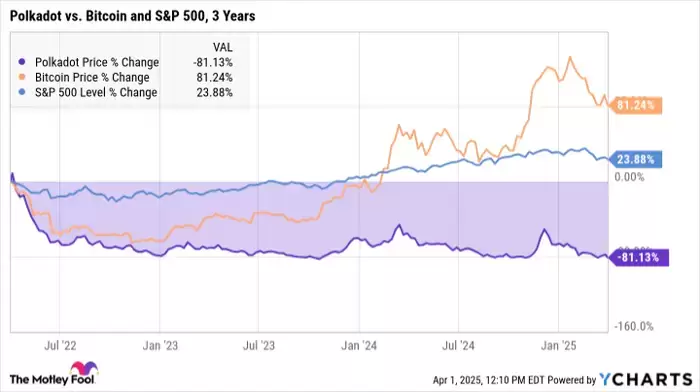 |
|
 |
|
 |
|
 |
|
 |
|
 |
|
 |
|
 |
|
 |
|
 |
|
 |
|
 |
|
 |
|
 |
|
 |
|
Cryptocurrency News Articles
US Strategic Bitcoin Reserve formation might have China re-thinking its hardline stance against crypto: Grayscale
Apr 02, 2025 at 09:13 pm
The Trump administration's formation of a U.S. Strategic Bitcoin Reserve might have China re-thinking its hardline stance against crypto and that could be key for accelerated global adoption of BTC, asset manager Grayscale said in a research report Monday.

Asset manager Grayscale said in a research report Monday that the Trump administration's formation of a U.S. Strategic Bitcoin Reserve might have China re-thinking its hardline stance against crypto and that could be key for accelerated global adoption of BTC.
"The most important country to watch in this regard is China," said Grayscale, adding that if the country eases its crypto restrictions "it could significantly boost global adoption."
President Trump last month directed his administration to form a Strategic Bitcoin Reserve to — at a minimum — hold the assets that have been seized by the government.
Grayscale noted that current Chinese government policy bans most crypto activities, such as trading and mining, but permits the holding of digital assets.
Still, "policymakers have allowed an expansion of crypto-related activity in Hong Kong under the ‘one country, two systems’ framework," Grayscale said.
Local regulators may be taking another look at the legal treatment of cryptocurrencies in the country. China's Supreme Court and other judicial bodies had a discussion in February about how to treat digital assets in future legal cases, the report noted.
The Trump administration is forming a U.S. Strategic Bitcoin Reserve, which will hold units of BTC and serve as a core component of the administration's broader economic and financial strategy, the White House announced last month.
The initiative is part of a broader move by the administration to integrate cryptocurrencies into the U.S. economic and financial systems.
"The administration is committed to creating a comprehensive and balanced policy framework for cryptocurrencies that promotes innovation, protects consumers, and enhances the efficiency and resilience of the U.S. economic and financial systems," the White House said in a statement.
The Strategic Bitcoin Reserve will be managed by the Treasury Department, in coordination with other relevant agencies, such as the Federal Reserve and the Securities and Exchange Commission.
The reserve will hold BTC that has been seized by the government, as well as BTC that is purchased by the government on the open market.
The initiative is expected to face scrutiny from lawmakers, who have raised concerns about the potential for cryptocurrencies to be used for illicit activities, such as money laundering and tax evasion.
However, supporters of cryptocurrencies argue that they can promote financial inclusion and provide consumers with greater choice in the marketplace.
The move by the Trump administration comes as several other countries, including Japan, South Korea, and China, are also taking steps to regulate cryptocurrencies.
Earlier this year, a bipartisan group of lawmakers introduced legislation that would create a framework for the regulation of cryptocurrencies in the U.S.
The bill, which is called the "Token Taxonomy Act," would define different types of tokens and establish clear rules for their issuance and trading.
The legislation would also create a new regulator, the "Digital Asset Commission," which would be responsible for overseeing the industry.
The bill is still pending in Congress.
As part of the broader initiative to integrate cryptocurrencies into the U.S. economic and financial systems, the Trump administration is also exploring the possibility of issuing a U.S. central bank digital currency (CBDC).
The Federal Reserve is currently conducting research on the potential pros and cons of a CBDC, and the administration is expected to make a decision on whether to proceed with the issuance of a CBDC by early 2021.
A CBDC would be a digital form of the U.S. dollar that is issued and managed by the Federal Reserve.
It would be available to the public and private sectors and could be used for a variety of purposes, such as making payments, transferring funds, and saving.
The issuance of a CBDC would be a significant step for the U.S., and it would have far-reaching implications for the financial industry, the broader economy, and the role of the dollar in the global monetary system.
The Trump administration is also planning to launch a new initiative to promote the use of cryptocurrencies for cross-border payments.
This initiative, which is being led by the State Department, will focus on facilitating the use of cryptocurrencies for cross-border transactions between the U.S. and other countries.
The goal of this initiative is to reduce the costs and inefficiencies associated with traditional cross-border payment systems and to promote the dollar's role in the global monetary system.
The initiative is expected to involve collaboration with other governments, financial institutions, and industry stakeholders.
The Trump administration's efforts to integrate cryptocurrencies into the U.S. economic and financial systems are part of a broader agenda to promote innovation and economic growth.
These efforts are likely to continue into the next administration, regardless of who wins the 2020 presidential election.output: Asset manager Grayscale said in a research report Monday that the Trump administration's formation of a U.S. Strategic Bitcoin Reserve might have China re-thinking its hardline stance against crypto and that could be key for accelerated global adoption of BTC.
"The most important country to watch
Disclaimer:info@kdj.com
The information provided is not trading advice. kdj.com does not assume any responsibility for any investments made based on the information provided in this article. Cryptocurrencies are highly volatile and it is highly recommended that you invest with caution after thorough research!
If you believe that the content used on this website infringes your copyright, please contact us immediately (info@kdj.com) and we will delete it promptly.




























































